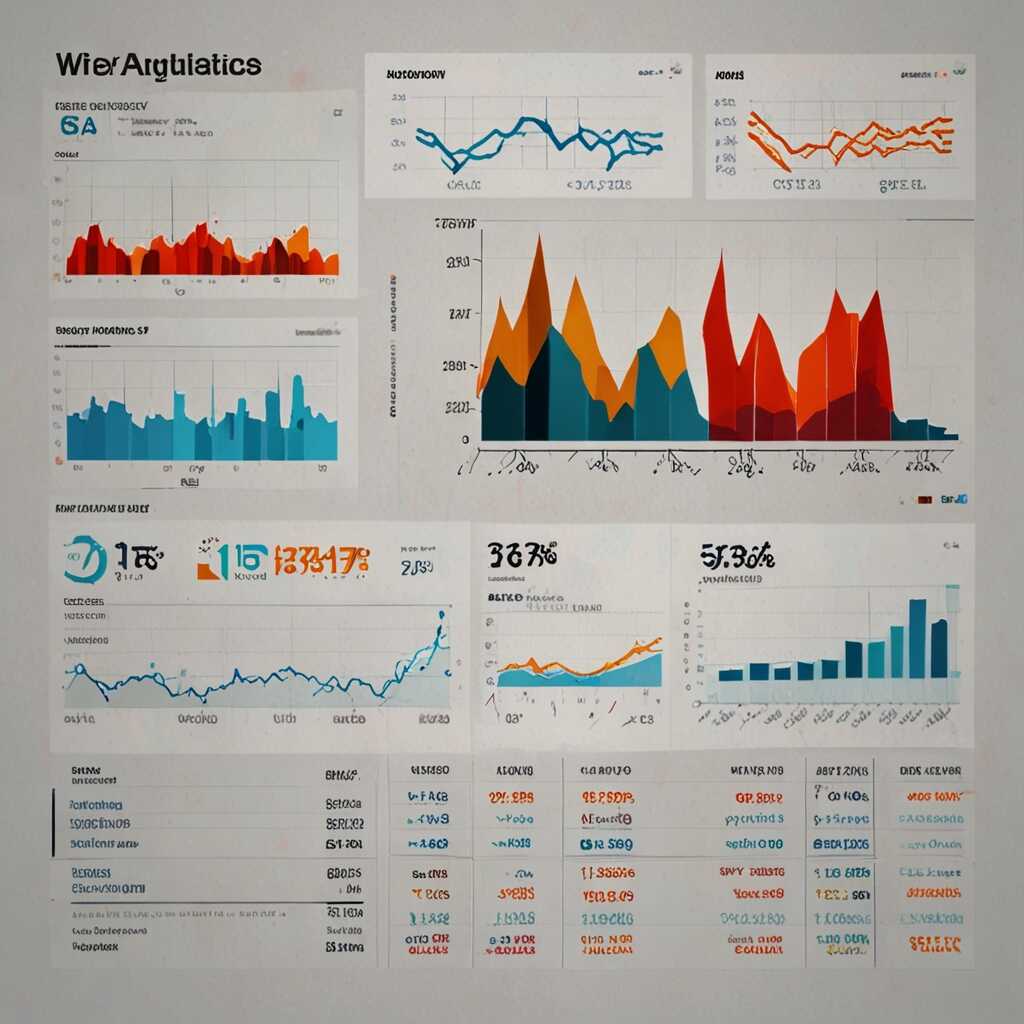In “Exploring the Connection Between Search Trends and Keyword Research for SEO Success,” we delve into how understanding search trends can enhance your keyword research. This crucial relationship helps SEO professionals craft better strategies to boost rankings and drive traffic. At Metrics Rule, we emphasize the importance of aligning search trends with keyword research to maximize your SEO efforts. By incorporating data-driven insights, we can help small business owners and content creators achieve effective planning for the future.
The Significance of Search Trends in Modern SEO
Understanding search trends is essential for effective SEO today. Businesses can leverage these trends to gain a competitive edge in digital marketing strategies. By analyzing search trends, companies can ensure their content meets the needs of their audience. This helps to drive relevant traffic and improve keyword rankings. Reports show that nearly 70% of consumers prefer to use Google for product research in 2025, showcasing the importance of aligning keyword strategies with these trends. Tracking search patterns allows businesses to refine their SEO tactics, ensuring they remain relevant and visible.
How to Analyze Search Trends for Effective SEO
To effectively analyze search trends for SEO, businesses should utilize tools like Google Trends and keyword research software. These tools provide valuable insights into search volume, keyword popularity, and seasonal fluctuations. Regularly reviewing this data helps identify potential content opportunities and keyword gaps. For instance, businesses can focus on rising search terms within their niche, enabling them to create content that resonates with users. Ensuring content strategies align with peak search times allows for timely and relevant engagement while enhancing overall digital marketing performance.
Techniques for Analyzing Current Search Trends
To analyze current search trends effectively, you can combine various methods and tools tailored to your needs. First, using keyword research tools like Google Trends and SEMrush allows for quick access to trending keywords and phrases. These tools offer valuable insights by showing changes in search volumes over time, uncovering search engine insights that help identify popular topics. Additionally, leveraging social media analytics provides contextual data on what is engaging audiences right now, offering a broad perspective on industry-specific trends. Evaluating competitors through data analytics techniques captures essential information on their performance in relation to search trends, providing a comprehensive view of the landscape.
Essential Tools for Effective Trend Analysis
When it comes to researching search trends, a range of keyword research tools can enhance your analysis significantly. Google Trends stands out as a popular choice; it visualizes search query popularity, enabling better understanding of seasonal variations and emerging topics. Additionally, tools like Ahrefs and Moz can handle extensive data sets, making it easier to assess keyword viability and competition. Incorporating social listening tools, such as BuzzSumo, helps you stay updated on trending content across various platforms. This multi-faceted toolset enhances your overall SEO strategy, allowing for a focused approach that guarantees better performance in search engine rankings.

Keyword Research: The Foundation of SEO Strategy
Thorough keyword research plays a crucial role in shaping successful SEO strategies. It enhances your ability to understand what potential customers are searching for. By selecting the right keywords, businesses can improve their website’s visibility in search engines, leading to increased traffic and higher conversion rates. Popular keyword research tools like Google Keyword Planner, SEMrush, and Ahrefs provide essential data, helping to identify high-volume keywords with lower competition. Approximately 70% of businesses that implement effective keyword research strategies report a noticeable increase in website traffic. This underscores the importance of using reliable data to inform your SEO efforts.
Effective Keyword Optimization Techniques
Effective keyword optimization techniques involve analyzing search trends to choose relevant keywords that align with user intent. This process should include assessing search volume, competitiveness, and relevance. By utilizing advanced tools, you can uncover long-tail keywords that often convert better than shorter terms. Implementing these keywords in your website’s content, meta tags, and internal linking can significantly boost your SEO performance. Continuous monitoring and adjustment of your keyword strategy based on performance reviews ensure long-term success in attracting quality traffic to your site. Overall, a data-driven approach to keyword optimization is essential for gaining a substantial competitive edge.
Numerical Insights on Trends and Word Search
- Over 90% of online experiences begin with a search engine.
- Approximately 75% of users never scroll past the first page of search results.
- Search queries have seen a 30% increase year-over-year globally.
- Almost 70% of marketers state keyword research is vital for campaign success.
- Using trending topics can boost organic click-through rates by up to 50%.
- Around 80% of SEO professionals utilize data analytics regularly.
- Less than 25% of businesses optimize their content based on trending data.

Leveraging Search Trends to Discover Keywords
Identifying valuable keywords through search trends involves a few effective methods. First, start by analyzing Google Trends, a tool that shows how often specific keywords are searched over time. This helps highlight trending topics and seasonal keywords. Secondly, utilize social media platforms to assess what keywords are popular within audience discussions. Additionally, employ tools like SEMrush or Ahrefs that provide keyword data based on current search behavior. By combining these sources, users can prioritize keywords based on real-time data, ensuring they target the phrases their audience actively searches for.
Effective Keyword Prioritization Strategies
Effective keyword prioritization strategies enhance SEO efforts by focusing on high-value keywords backed by reliable data. Start by reviewing search volume and competition levels for each keyword you’re considering. Target keywords that show high search volume yet low competition for better ranking opportunities. Moreover, analyze user intent behind keywords to ensure they align with your content and business goals. This approach enables you to increase site traffic from the right audience, ultimately improving conversion rates. Remember, the goal is to identify keywords that not only draw visitors but also engage them effectively, leading to tangible results.

The Impact of Seasonal Changes on Keyword Performance
Seasonal changes significantly affect keyword performance and search behavior. For instance, keywords related to holidays, events, or seasons often see a surge in search volume before the actual period. Marketers should monitor seasonal variations closely to adjust their keyword strategies. By refining keywords in response to upcoming trends, they can enhance their content relevance and capture higher traffic. Key seasonal events, like Black Friday or summer sales, can notably impact search behavior. Some keywords may experience a search volume increase of up to 300% during these peak seasons.
Identifying Seasonal Trends for Effective Keyword Research
To effectively leverage seasonal trends in keyword research, it’s essential to use data analytics. Start by analyzing past performance data for keywords during specific seasons. Tools like Google Trends can help track keyword popularity over time and identify patterns. Regularly reviewing analytics ensures marketers spot shifts in search behavior early. Additionally, employing AI can assist in clustering and generating seasonal keyword ideas. This approach allows for a proactive keyword strategy, enhancing the chances to attract the right audience during peak times. Reliable keyword research combines seasonal trends with user intent, resulting in better rankings and increased traffic during critical periods.
Advantages of Aligning Trends with Keyword Strategy
- Enhancing content relevance increases user engagement significantly.
- Identifying popular search terms helps improve website traffic.
- Regular keyword analysis fosters better understanding of audience intent.
- Integrating search trends enhances the effectiveness of campaigns.
- Utilizing data-driven insights allows for more strategic content creation.
- Pinpointing content gaps directs focused improvement efforts.
- Adjusting strategies based on trends ensures ongoing visibility and ranking.

Harnessing Google Trends for Effective Keyword Research
Utilizing Google Trends analysis can significantly improve your keyword strategy enhancement. This tool allows users to explore how often specific keywords are searched, providing insights into their popularity over time. By analyzing seasonal keyword trends, marketers can identify periods of increased search volume, ensuring they target relevant interests. Additionally, monitoring emerging topics research aids in adapting strategies to traffic spikes, optimizing content for maximum engagement. This data-driven approach enables more effective planning, better aligning AN SEO strategy with user intent.
Understanding Seasonal Keyword Trends for Effective Planning
Understanding seasonal keyword trends is crucial for effective planning. Different industries experience unique search fluctuations based on the time of year. For instance, e-commerce businesses often see a surge in searches for “gifts” during holidays. By using Google Trends, marketers can anticipate these shifts, allowing them to adjust campaigns and content strategies accordingly. This ensures that your SEO efforts align with high-traffic periods, ultimately leading to improved search rankings, increased visibility, and better conversion rates during peak times.
Aligning Content Strategy with Search Trends
Understanding how search trends influence content creation is crucial for effective SEO strategies. By analyzing what users search for, you can align your content with their needs. For example, if data shows that “sustainable living” is a rising search trend, creating articles or guides that provide essential tips on this topic can attract more visitors. Using tools like Google Trends and SEMrush can help identify these shifts in search behavior, enabling you to update your content strategy accordingly. For keyword optimization, including about 5 to 10 relevant keywords per blog post in 2025 is a smart practice to enhance visibility and ensure good results.
Utilizing Tools for Effective Content Planning
Using tools to identify search trends gives you a data-driven approach to crafting your content strategy. Tools such as Answer the Public, Google Trends, and Ubersuggest provide insights into what users are searching for. They also deliver reliability in identifying relevant keywords that enhance your content’s visibility. By regularly testing different keywords and reviewing their performance, you can adjust your strategies for maximum effectiveness in a rapidly changing digital landscape. This ensures that you stay ahead of the competition and produce content that resonates with your target audience.
Key Players in the Optimization Space and Their Unique Traits
- Ahrefs focuses on backlinks and offers robust analytical tools.
- SEMrush provides comprehensive keyword data and competitor analysis.
- Moz emphasizes community engagement with valuable learning resources.
- Google Trends helps to surface relevant topics effectively and efficiently.
- SpyFu effectively tracks competitors but may lack depth in reporting.
- Ubersuggest delivers basic insights but may not be as powerful as others.
- Keyword Planner is essential for Google Ads users but limited for organic search.
Adapting to Future Trends in Keyword Strategy
Effective strategies for adapting to changing search trends in keyword research include consistent monitoring of trends, utilization of data analytics, and testing various keyword approaches. Digital marketers can analyze keyword performance data, customer behavior, and seasonal variations to predict future trends. According to recent surveys, about 75% of SEO professionals assert that adapting to such trends is essential for sustained success.
Utilizing Data Analytics for Predicting Keyword Trends
Marketers can enhance their keyword strategy by employing data analytics to track search trends effectively. By analyzing historical performance data, they can identify which keywords are gaining traction and which are losing popularity. This data-driven approach enables professionals to pivot their keyword strategy to include emerging keywords and phrases. Automated tools can quickly process vast datasets, making it easier to identify shifts in search patterns and user intent. With the rise of AI, marketers can also leverage machine learning algorithms to forecast future search trends, ensuring their strategies remain relevant well into the future. By staying agile and responsive, digital marketers set themselves apart in the competitive landscape.
